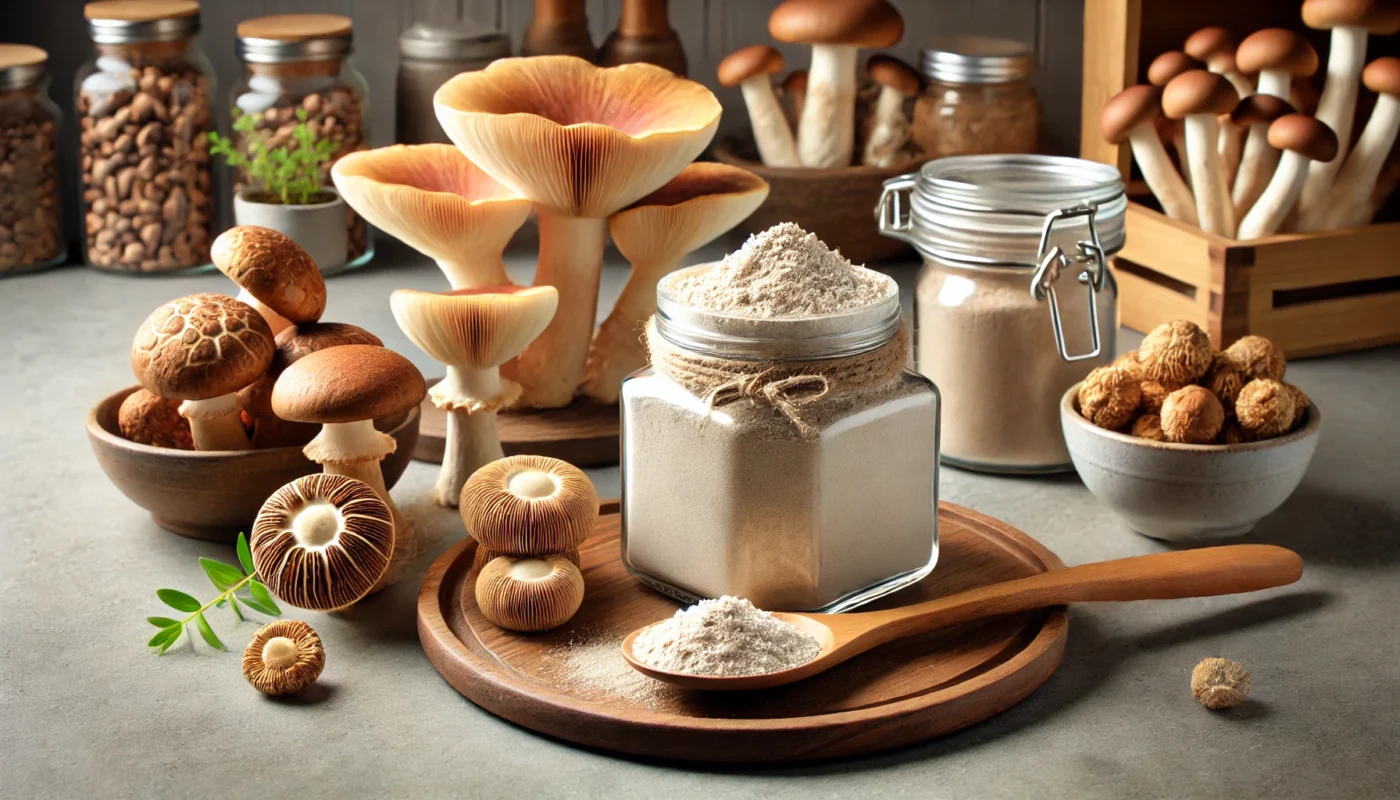Inflammation is the body’s natural response to injury or infection, serving as a defense mechanism to initiate healing. However, it’s essential to differentiate between acute and chronic inflammation. Acute inflammation is beneficial and necessary for healing, while chronic inflammation can be detrimental, persisting and potentially leading to various health issues, including heart disease, diabetes, and arthritis. Understanding the dual nature of inflammation is crucial for appreciating how mushrooms can play a role in managing it.
The Biological Process of Inflammation
At the cellular level, inflammation involves a complex cascade of events. When the body senses an injury or a pathogen, it triggers an immune response, sending white blood cells to the affected area. This response results in the release of pro-inflammatory cytokines and other chemicals that help to repair the tissue. However, when this process becomes chronic, it can lead to tissue damage and various diseases.
Chronic Inflammation and Its Consequences
Chronic inflammation is often silent and can go unnoticed for years. It results from a continued immune response, even when there’s no apparent external threat. This persistent state can lead to the gradual destruction of tissue and has been linked to a range of diseases, including cancer, Alzheimer’s, and autoimmune disorders. Addressing chronic inflammation is crucial for maintaining long-term health and well-being.
Lifestyle Factors Contributing to Inflammation
Several lifestyle factors can exacerbate inflammation. Poor diet, stress, lack of exercise, and exposure to environmental toxins can all contribute to an inflammatory state. By understanding these factors, individuals can make informed choices to reduce their risk and manage inflammation more effectively.
You May Also Like: Do Antioxidants Really Combat Inflammation Effectively?
Do Mushrooms Cause Inflammation?
A common query in the health community is whether mushrooms can cause inflammation. The answer is generally no. Mushrooms are typically celebrated for their health benefits, but some individuals may experience allergic reactions to certain types of mushrooms. These instances are rare and not indicative of mushrooms’ overall impact on inflammation.
Allergic Reactions to Mushrooms
While mushrooms are generally safe for most people, some individuals may experience allergic reactions. Symptoms can range from mild, such as skin rashes or itching, to severe, including difficulty breathing or anaphylaxis. It’s important for individuals with known mushroom allergies to avoid consumption and seek alternatives.
Understanding Individual Sensitivities
Sensitivities to mushrooms can vary widely among individuals. Some people may have a specific sensitivity to one type of mushroom while tolerating others without issue. Understanding personal sensitivities is key to safely incorporating mushrooms into one’s diet.
How to Test for Mushroom Allergies
If there’s a concern about potential mushroom allergies, allergy testing can provide clarity. Skin prick tests or blood tests can help determine if one has an allergy to specific types of mushrooms. Consulting with an allergist can provide personalized advice and testing options.
Are Mushrooms Anti-Inflammatory?
Research suggests that many mushrooms possess significant anti-inflammatory properties. Compounds such as polysaccharides, particularly beta-glucans, and antioxidants like ergothioneine, contribute to reducing inflammation within the body. These components work by modulating the immune system and reducing oxidative stress, which are key players in the inflammatory process.
The Role of Polysaccharides
Polysaccharides, particularly beta-glucans, are found in high concentrations in many medicinal mushrooms. These complex carbohydrates play a crucial role in immune modulation, enhancing the body’s ability to respond to inflammation. Studies show that beta-glucans can help regulate immune responses, making them powerful anti-inflammatory agents.
Antioxidants and Their Impact
Antioxidants like ergothioneine found in mushrooms help combat oxidative stress, a key factor in chronic inflammation. Oxidative stress occurs when there is an imbalance between free radicals and antioxidants in the body, leading to cell damage. By neutralizing free radicals, antioxidants in mushrooms help reduce inflammation and protect against disease.
Synergistic Effects of Mushroom Compounds
The combination of various bioactive compounds in mushrooms can lead to synergistic effects, enhancing their overall anti-inflammatory potential. When these compounds work together, they can provide more significant health benefits than any single compound alone. This synergy makes mushrooms a powerful addition to an anti-inflammatory diet.

Key Anti-Inflammatory Mushrooms
Different mushrooms offer varying degrees of anti-inflammatory benefits. Here are some of the most potent:
Reishi Mushrooms
Known as the “mushroom of immortality,” Reishi is renowned for its immune-modulating abilities. Studies have shown that Reishi can inhibit the production of inflammatory compounds, thus reducing inflammation. Its triterpenes and polysaccharides contribute to its potent effects, making it a staple in traditional Chinese medicine for promoting longevity and health.
Shiitake Mushrooms
Shiitake mushrooms are not only a culinary delight but also a powerhouse of nutrients and bioactive compounds. They contain polysaccharides like lentinan, which have been shown to possess anti-inflammatory and immune-boosting properties. Additionally, their rich nutrient profile supports overall health, making them a versatile ingredient in various dishes.
Maitake Mushrooms
Rich in antioxidants and beta-glucans, Maitake mushrooms help in fighting inflammation and supporting the immune system. Research indicates that they can help mitigate the effects of inflammatory cytokines, which are molecules that signal inflammation in the body. Their unique compounds make them beneficial for blood sugar regulation and overall metabolic health.
Lion’s Mane Mushrooms
Aside from their cognitive benefits, Lion’s Mane mushrooms also offer anti-inflammatory effects. They are particularly effective in reducing inflammation linked to neurological conditions, making them a unique addition to the anti-inflammatory mushroom family. Lion’s Mane is gaining attention for its potential in supporting nerve health and cognitive function.
Cordyceps Mushrooms
Cordyceps mushrooms are known for their energy-boosting and anti-inflammatory properties. They enhance the body’s ability to use oxygen efficiently and improve circulation, which can help reduce inflammation. Cordyceps are often used by athletes and those looking to improve physical performance and recovery.
Scientific Evidence Supporting Anti-Inflammatory Effects
Several studies underscore the anti-inflammatory properties of mushrooms. For instance, a study published in the “Journal of Medicinal Food” found that Reishi mushrooms reduced inflammatory markers in participants with chronic inflammation. Another study in “Food & Function” highlighted the ability of Shiitake mushrooms to decrease oxidative stress and inflammation in animal models.
Clinical Trials and Their Findings
Numerous clinical trials have investigated the effects of mushrooms on inflammation. These studies often reveal significant reductions in inflammatory markers, supporting mushrooms’ role in managing chronic inflammatory conditions. The consistency of these findings across various studies highlights the reliability of mushrooms as a natural anti-inflammatory remedy.
Animal Studies and Insights
Animal studies provide valuable insights into how mushrooms can affect inflammation. These studies often demonstrate the mechanisms by which mushroom compounds modulate the immune system and reduce oxidative stress. Although more human studies are needed, animal research lays a strong foundation for understanding mushrooms’ potential benefits.
Potential for Future Research
The promising results from existing studies pave the way for future research into mushrooms’ anti-inflammatory effects. Continued exploration into different mushroom species and their unique compounds can uncover new therapeutic uses. As science advances, we can expect to see more targeted studies examining specific health conditions and mushroom interventions.

Practical Tips for Incorporating Mushrooms
Integrating mushrooms into your diet is both easy and beneficial. Here are some practical tips:
Culinary Uses
- Soups and Stews: Add Shiitake or Maitake mushrooms to soups and stews for a nutritional boost. Their rich umami flavor enhances the taste while providing anti-inflammatory benefits.
- Salads: Toss raw or lightly sautéed mushrooms into salads for added texture and flavor. Mushrooms like Lion’s Mane can add a unique touch to your favorite greens.
- Smoothies: Blend powdered Reishi or Lion’s Mane into smoothies for a daily dose of anti-inflammatory benefits. Their subtle flavors blend well with fruits and vegetables.
Creative Cooking with Mushrooms
Mushrooms can be incorporated into various cuisines and dishes. Try using them as a meat substitute in vegetarian recipes, or as a topping for pizzas and pasta. Experimenting with different cooking methods, such as grilling or roasting, can bring out their natural flavors and health benefits.
Supplements
For those who may not enjoy the taste of mushrooms, supplements are a convenient alternative. Many health stores offer mushroom extracts in capsule or powder form, ensuring you can reap the benefits without altering your diet significantly. These supplements often contain concentrated doses of beneficial compounds, making them an efficient way to support health.
Choosing the Right Supplement
When selecting a mushroom supplement, it’s essential to consider quality and sourcing. Look for products that are organically grown and free from fillers or additives. Consulting with a healthcare professional can help determine the right supplement for your needs, especially if you have specific health goals or conditions.
Conclusion
Mushrooms offer a natural and effective way to combat inflammation, thanks to their unique compounds and nutrients. By understanding which mushrooms are most beneficial and incorporating them into your diet or supplement regimen, you can take proactive steps toward reducing inflammation and enhancing overall health. As always, consult with a healthcare provider before making significant changes to your diet or health routine, especially if you have existing health conditions or are on medication.
By harnessing the power of mushrooms, you can unlock new pathways to health and well-being, grounded in both ancient wisdom and modern science. Embracing these natural allies in your health journey can lead to improved vitality and resilience, offering a holistic approach to managing inflammation and promoting longevity.

Further Reading:
The Nutrition Source: Mushrooms
MDPI: Antioxidant and Anti-Inflammatory Activity of Five Medicinal Mushrooms of the Genus Pleurotus
National Library of Medicine: Anti-inflammatory properties of edible mushrooms: A review
anti-inflammatory, mushrooms, health benefits, chronic inflammation, immune system, dietary supplements, medicinal mushrooms, nutrition, antioxidants, polysaccharides, Reishi, Shiitake, Maitake, Lion’s Mane, Cordyceps, inflammation management, holistic health, wellness, natural remedies, food science
Important Note: The information contained in this article is for general informational purposes only, and should not be construed as health or medical advice, nor is it intended to diagnose, prevent, treat, or cure any disease or health condition. Before embarking on any diet, fitness regimen, or program of nutritional supplementation, it is advisable to consult your healthcare professional in order to determine its safety and probable efficacy in terms of your individual state of health.
Regarding Nutritional Supplements Or Other Non-Prescription Health Products: If any nutritional supplements or other non-prescription health products are mentioned in the foregoing article, any claims or statements made about them have not been evaluated by the U.S. Food and Drug Administration, and such nutritional supplements or other health products are not intended to diagnose, treat, cure, or prevent any disease.

